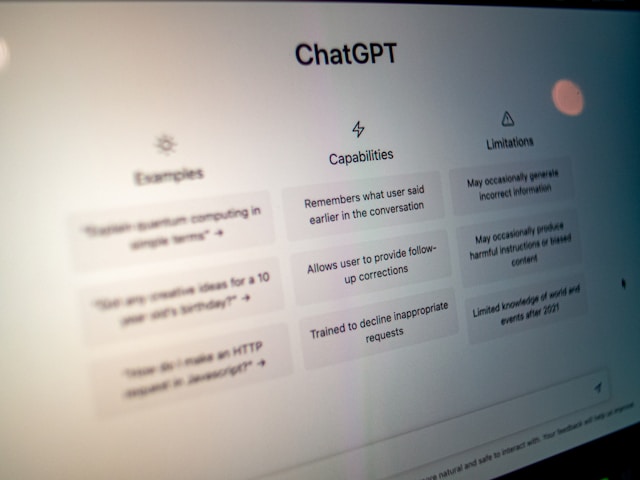- Content
- News
- Two Thirds of Employees Would Trust AI to Inform Important Work Decisions
28 January 2025 | Updated 30 January 2025
A CIPD poll shows that out of 2,000 people, 63 per cent would trust AI to inform important work decisions.
35 per cent wouldn’t trust AI to make important decisions at work and one per cent of respondents would trust AI to make important work decisions.
The data has led the CIPD to call on employers and HR teams to have clear guidelines on AI usage at work, covering ethical practices, data security and fair treatment.
Hayfa Mohdzaini, Senior Policy and Practice Adviser for Technology at the CIPD, explains: “There’s no question that AI is transforming jobs, careers and workplaces at a rapid pace. By fostering a culture of experimentation and shared learning, organisations can help employees to develop their skills and become more comfortable using new technologies. We’ve seen that AI can be used effectively to support decision-making and simplify processes, thereby freeing up time to do other things.
“But as our findings suggest, human oversight is still very important and there’s a careful balance to be struck. When used alongside human judgement, and in a responsible and ethical way, AI can enhance jobs and increase productivity.
“Organisations have a responsibility to have clear guidelines in place and train people on AI as needed, to ensure that no one gets left behind. It’s also essential for employers to monitor how technology is being used in their organisations and to help employees to understand the risks involved."
Is AI a Security Risk?
Security SaaS company Indusface found that almost 2 in 5 (38 per cent) professionals they polled admitted to sharing personal data with AI platforms without their company’s permission. Most commonly this takes the form of files and documents to assist with data analysis and presentations. This could include sensitive client data, eand mployee data.
According to Cyberhaven, since ChatGPT launched, 4.7 per cent of employees have pasted sensitive data into the tool at least once.
Picture: a computer screen showing the homepage of ChatGPT. Image Credit: Unsplash
Article written by Ella Tansley | Published 28 January 2025
Share
Related Articles
Robert Scott Adds Two New AI-Powered Robots To Its Cobotics Range
Commercial cleaning product manufacturer and distributor Robert Scott has added two new AI-powered robots to its steadily expanding cobotics range, the MT1 Vac and MT1...
Read Full Article
The Great Reset: Why 2026 Will Redefine the Future of FM
Till Eichenauer, CEO at askporter, provides insights from askporter’s recent UK FM Market Research Report (Report).
The FM sector is undergoing rapid change. For...
Read Full Article
Aston University Launches AI-Powered Business Hub For Birmingham Entrepreneurs
Aston University has opened a new million-pound AI-powered business hub in Birmingham as part of a major investment in the city’s innovation and enterprise...
Read Full Article
How AI is Influencing Facilities Management
For Brett Ellis, Regional Facilities & Asset Manager Komatsu, a construction and mining multinational company, AI is the difference between days and weeks.
Komatsu...
Read Full Article
SFG20 Introduces World’s First AI Asset-to-Schedule Mapping Software
SFG20’s latest software module uses AI to identify the appropriate maintenance for assets, reducing manual asset-to-schedule mapping time by up to 95 per...
Read Full Article
Driverless Taxis to be Introduced in London by 2026
Autonomous taxi service Waymo is set to arrive in London by 2026, marking the brand’s first move into Europe.
Waymo’s latest models operate using cameras,...
Read Full Article
Why FM is Central to the UK’s Digital Future
The Tech Prosperity Deal between the UK and the US could present a huge growth opportunity for the facilities management sector.
In this Opinion piece, Richard Sykes,...
Read Full Article
RICS Publishes Global Standard on AI Use in Surveying
The Royal Institution of Chartered Surveyors has developed a new standard for the responsible use of artificial intelligence in surveying practice.
The standard will...
Read Full Article
JLL Introduces AI Property Assistant
JLL Property Assistant delivers recommendations for property managers via a natural language chat interface.
Using data from PropTech platforms, including JLL's...
Read Full Article
UK Government Plans to Fast Track AI Infrastructure
The government believes that fast tracking planning approvals will help to expand the UK’s domestic AI infrastructure.
Proposed “AI Growth...
Read Full Article

.gif)

.gif)
.gif)







.png)

.png)
